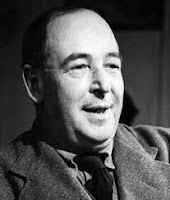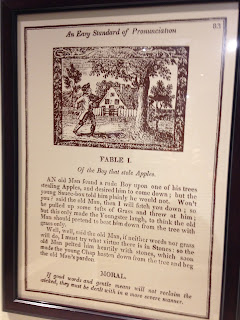Last night I had the opportunity to attend the
biennial Laura F. Wilkes Book of Mormon Lecture. Professor John W. Welch delivered a fine lecture about the timing of the translation of the
Book of Mormon. Welch explained many meticulous details about the translation process, including estimates of the time that was spent to complete the work of translation. According to Welch, the maximum number of possible days available for the translation of the
Book of Mormon from April 7 to June 30, 1829 is 74 days, but it is possible that Joseph Smith and his scribes accomplished the work of translation (269,510 words) in as few as 58 days. (
see also here) Welch's research on the
Book of Mormon translation timeline is also available in the second edition of his edited volume
Opening the Heavens: Accounts of Divine Manifestations, 1820-1844.
Welch's lecture was insightful and faith promoting, but I was particularly impressed by the events that inspired his meticulous research. In 1985,
Elder Neal A. Maxwell posed a simple question to him: "How long did it take Joseph Smith to translate the
Book of Mormon?" Welch interspersed a few other noteworthy statements by Elder Maxwell throughout his presentation:
"These were days never to be forgotten—to sit under the sound of a voice dictated by the inspiration of heaven, awakened the utmost gratitude of this bosom! Day after day I continued, uninterrupted, to write from his mouth, as he translated with the Urim and Thummim, or, as the Nephites would have said, ‘Interpreters,’ the history or record called ‘The Book of Mormon.’
To notice, in even few words, the interesting account given by Mormon and his faithful son, Moroni, of a people once beloved and favored of heaven, would supersede my present design; I shall therefore defer this to a future period, and, as I said in the introduction, pass more directly to some few incidents immediately connected with the rise of this Church, which may be entertaining to some thousands who have stepped forward, amid the frowns of bigots and the calumny of hypocrites, and embraced the Gospel of Christ.
No men, in their sober senses, could translate and write the directions given to the Nephites from the mouth of the Savior, of the precise manner in which men should build up His Church, and especially when corruption had spread an uncertainty over all forms and systems practiced among men, without desiring a privilege of showing the willingness of the heart by being buried in the liquid grave, to answer a ‘good conscience by the resurrection of Jesus Christ.’
After writing the account given of the Savior’s ministry to the remnant of the seed of Jacob, upon this continent, it was easy to be seen, as the prophet said it would be, that darkness covered the earth and gross darkness the minds of the people. On reflecting further it was as easy to be seen that amid the great strife and noise concerning religion, none had authority from God to administer the ordinances of the Gospel. For the question might be asked, have men authority to administer in the name of Christ, who deny revelations, when His testimony is no less than the spirit of prophecy, and His religion based, built, and sustained by immediate revelations, in all ages of the world when He has had a people on earth? If these facts were buried, and carefully concealed by men whose craft would have been in danger if once permitted to shine in the faces of men, they were no longer to us; and we only waited for the commandment to be given ‘Arise and be baptized.’
This was not long desired before it was realized. The Lord, who is rich in mercy, and ever willing to answer the consistent prayer of the humble, after we had called upon Him in a fervent manner, aside from the abodes of men, condescended to manifest to us His will. On a sudden, as from the midst of eternity, the voice of the Redeemer spake peace to us, while the veil was parted and the angel of God came down clothed with glory, and delivered the anxiously looked for message, and the keys of the Gospel of repentance. What joy! what wonder! what amazement! While the world was racked and distracted—while millions were groping as the blind for the wall, and while all men were resting upon uncertainty, as a general mass, our eyes beheld, our ears heard, as in the ‘blaze of day’; yes, more—above the glitter of the May sunbeam, which then shed its brilliancy over the face of nature! Then his voice, though mild, pierced to the center, and his words, ‘I am thy fellow-servant,’ dispelled every fear. We listened, we gazed, we admired! ’Twas the voice of an angel from glory, ’twas a message from the Most High! And as we heard we rejoiced, while His love enkindled upon our souls, and we were wrapped in the vision of the Almighty! Where was room for doubt? Nowhere; uncertainty had fled, doubt had sunk no more to rise, while fiction and deception had fled forever!
But, dear brother, think, further think for a moment, what joy filled our hearts, and with what surprise we must have bowed, (for who would not have bowed the knee for such a blessing?) when we received under his hand the Holy Priesthood as he said, ‘Upon you my fellow-servants, in the name of Messiah, I confer this Priesthood and this authority, which shall remain upon earth, that the Sons of Levi may yet offer an offering unto the Lord in righteousness!’
I shall not attempt to paint to you the feelings of this heart, nor the majestic beauty and glory which surrounded us on this occasion; but you will believe me when I say, that earth, nor men, with the eloquence of time, cannot begin to clothe language in as interesting and sublime a manner as this holy personage. No; nor has this earth power to give the joy, to bestow the peace, or comprehend the wisdom which was contained in each sentence as they were delivered by the power of the Holy Spirit! Man may deceive his fellow-men, deception may follow deception, and the children of the wicked one may have power to seduce the foolish and untaught, till naught but fiction feeds the many, and the fruit of falsehood carries in its current the giddy to the grave; but one touch with the finger of his love, yes, one ray of glory from the upper world, or one word from the mouth of the Savior, from the bosom of eternity, strikes it all into insignificance, and blots it forever from the mind. The assurance that we were in the presence of an angel, the certainty that we heard the voice of Jesus, and the truth unsullied as it flowed from a pure personage, dictated by the will of God, is to me past description, and I shall ever look upon this expression of the Savior’s goodness with wonder and thanksgiving while I am permitted to tarry; and in those mansions where perfection dwells and sin never comes, I hope to adore in that day which shall never cease."—
Messenger and Advocate, vol. 1 (October 1834), pp. 14–16.





















































